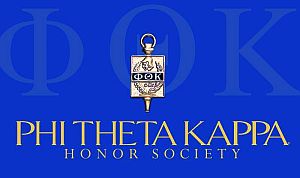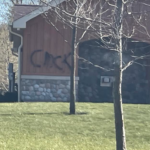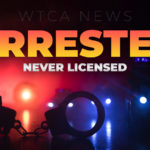Phi Theta Kappa Honor Society recently recognized Ancilla College as one of the 25 chapters with the highest membership acceptance rates.
The list is based on chapters’ acceptance rates in 2015. This new annual recognition serves as a way for all chapters — big and small, urban and rural — to see how their peers are performing. PTK is an international honor society of two-year colleges and academic programs founded in 1918.
Ancilla Communication Instructor and PTK coordinator Jodie Bowers said, “A lot of our students have little means to pay for their college education, as advisors, we always stress scholarship opportunities available to PTK members. For some of our students, being eligible for an academic scholarship means they will be able to continue onto a senior institution.”
Each of these chapters is well on track to receive recognition through Phi Theta Kappa’s REACH Rewards program, which honors those chapters who achieve or exceed a 15 percent membership acceptance rate in a calendar year with free graduation stoles for its members. The first REACH Rewards will be presented in spring 2017.
Phi Theta Kappa President and CEO Dr. Lynn Tincher-Ladner. “We’re eager to see how these chapters are getting these high acceptance rates and to share that information with everyone in the Society. There is much we can learn from each other.”
All chapters are automatically enrolled in the program. Rewards are calculated using the number of new members, the acceptance rate for the chapter and the graduation rate for the institution. The number of rewards earned will be based on a chapter’s size.
“While the REACH Rewards program may be based on numbers, it’s really about students,” Tincher-Ladner said. “It’s our hope that this recognition program will lead to more students receiving scholarships, learning leadership skills, cultivating soft skills and realizing opportunities they never knew they had on their campuses and in their communities. This, in turn, will lead to improved college completion rates, which benefits everyone.”
Bowers said, Bowers said, “Without those scholarship opportunities, earning a bachelor’s degree may not be possible for many of our students. So, while scholarship opportunities aren’t the only benefit of being a PTK member, it definitely drives our acceptance rates. Hopefully we’ll be able to keep this upward movement by doing more as a society to help members with professional development alongside the financial benefits.”
The President’s List
1. Beta Delta Chi, Cabarrus College of Health Sciences, North Carolina — 91%
2. Beta Zeta Sigma, Carolinas College of Health Sciences, North Carolina — 84%
3. Epsilon, Cottey College, Missouri — 78%
4. Beta Sigma Kappa, Southeast Missouri Hospital College of Nursing & Health, Missouri — 75%
5. Omicron Kappa, Marion Military Institute, Alabama — 63%
6. Iota Zeta, Northeast Mississippi Community College, Mississippi — 59%
7. Theta Lambda, Andrew College, Georgia — 57%
8. Beta Alpha Epsilon, Landmark College, Vermont — 55%
9. Theta Iota, Snead State Community College, Alabama — 55%
10. Beta Kappa Omicron, Brown Mackie College, Kansas — 51%
11. Alpha Delta Chi, River Valley Community College, New Hampshire — 50%
12. Alpha Upsilon Pi, Sussex County Community College, New Jersey — 48%
13. Beta Beta Beta, Ancilla College, Indiana — 46%
14. Pi Gamma, Florida College, Florida — 44%
15. Beta Omicron Eta, Chatfield College, Ohio — 43%
16. Beta Beta Iota, Southwestern Indian Polytechnic Institute, New Mexico — 42%
17. Beta Nu Delta, Thaddeus Stevens College of Technology, Pennsylvania — 42%
18. Theta Xi, East Central Community College, Mississippi — 41%
19. Beta Nu Alpha, Aaniiih Nakoda College, Montana — 41%
20. Alpha Phi Omicron, State Technical College of Missouri, Missouri — 41%
21. Alpha Lambda Zeta, Asnuntuck Community College, Connecticut — 41%
22. Beta Pi Gamma, College of Westchester, New York — 40%
23. Beta Kappa Alpha, Lackawanna College, Pennsylvania — 40%
24. Beta Gamma Phi, Lamar Institute of Technology, Texas — 38%
25. Delta Epsilon, Valley Forge Military College, Pennsylvania — 37%















